HELP US KEEP YOU INFORMED
The Prison Policy Initiative is your go-to source for timely and actionable criminal justice data, and we work hard to get you the information you need on pages like this one.
We need your help to do more. Can you support your favorite resource with a gift today?
With gratitude,
Peter Wagner, Executive DirectorDonate
We need your help to do more. Can you support your favorite resource with a gift today?
With gratitude,
Peter Wagner, Executive DirectorDonate
Prison Gerrymandering
Research on prison-based gerrymandering (see also www.prisonersofthecensus.org)
On this page, the Prison Policy Initiative has curated all of the research about prison gerrymandering that we know of. The Prison Policy Initiative is the leading organization on the issue of prison gerrymandering, and our Prisoners of the Census website offers a guide to all the research we've done on this topic. For research on other criminal justice topics, see our Research Library homepage.
- Correctional Facility and Inmate Locations: Urban and Rural Status Patterns Center for Administrative Records Research and Applications, July, 2017
-

-
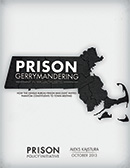
-
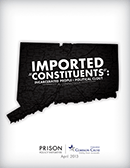
-
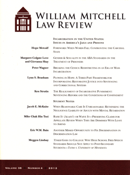
-
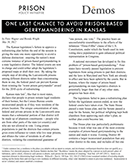
- Primer for reporters on county or municipal redistricting & prison-based gerrymandering Prison Policy Initiative, March, 2011
-
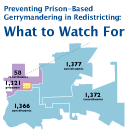
- Prevenir la manipulación de los límites de los distritos electorales sobre la base de la población reclusa: qué es lo que hay que evitar Prison Policy Initiative, February, 2011
- Captive Constituents Prison-Based Gerrymandering and the Distortion of Our Democracy NAACP, July, 2010
-
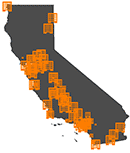
-

-

- Importing Constituents Prisoners and Political Clout in Connecticut Prison Policy Initiative, March, 2010
-
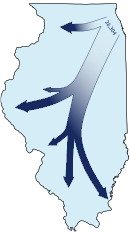
- Importing Constituents: Prisoners and Political Clout in Massachusetts Prison Policy Initiative, October, 2009
- Importing Constituents: Prisoners and Political Clout in Oklahoma Prison Policy Initiative, September, 2009
-

- Phantom Constituents in Maine's Regional School Unit 13: How the Census Bureau's outdated method of counting prisoners harms democracy Prison Policy Initiative, January, 2009
-
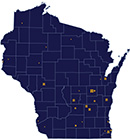
- Phantom Constituents in Tennessee's Boards of County Commissioners Prison Policy Initiative; Peter Wagner and JooHye DellaRocco, February, 2008
- Report to U.S. Committee for the Elimination of Racial Discrimination that U.S. Census practices dilute votes of minority populations Demos and Prison Policy Initiative, December, 2007
-
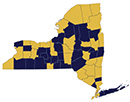
- Why the Census Bureau can and must start collecting the home addresses of incarcerated people Prison Policy Initiative, February, 2006
-

-

-
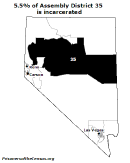
-
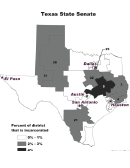
-

-
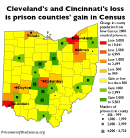
-
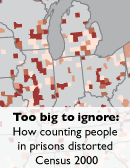
- Prisoners Gerrymandering Project Miscounting prisoners undercounts democracy Prison Policy Initiative, March, 2004
- Accuracy Counts Incarcerated People & the Census Brennan Center for Justice, January, 2004
-
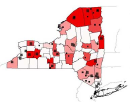
Pages Updated On: 2-Dec-2024 - 11:09:54
Links Engine 2.0 By: Gossamer Threads Inc.



